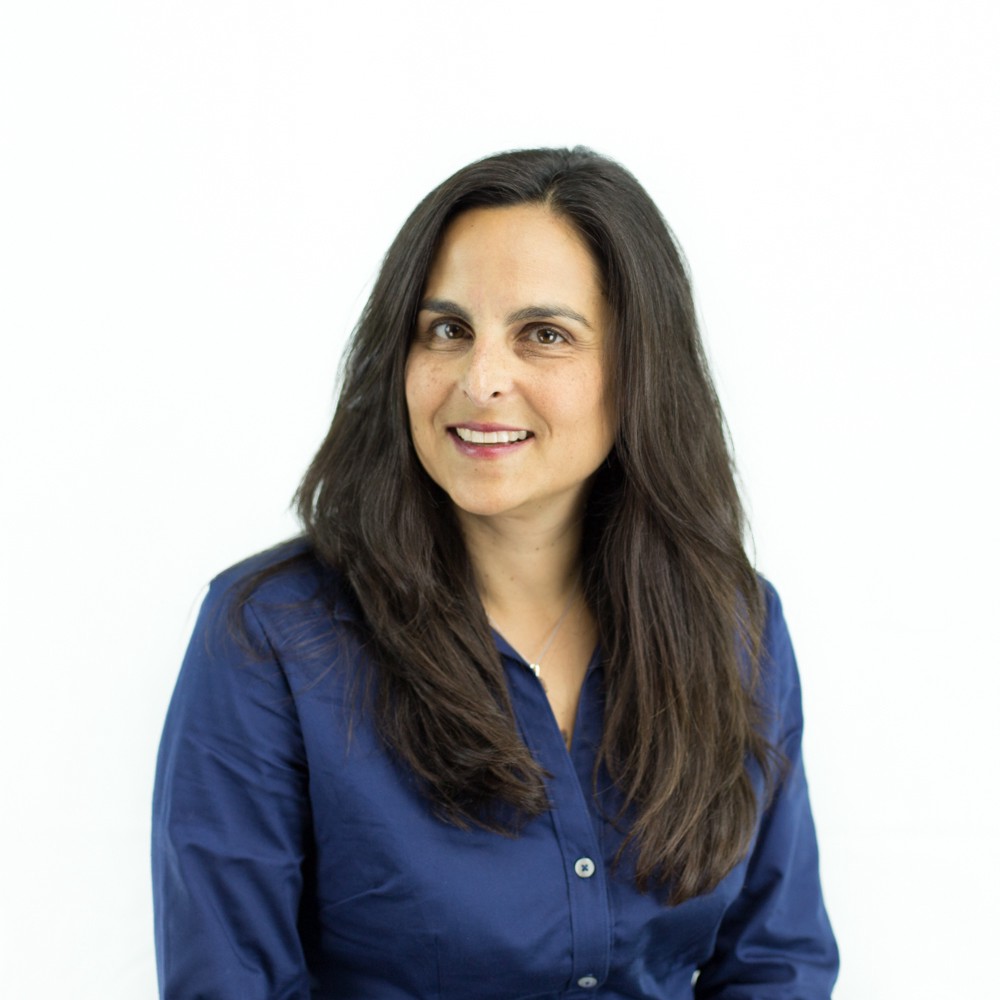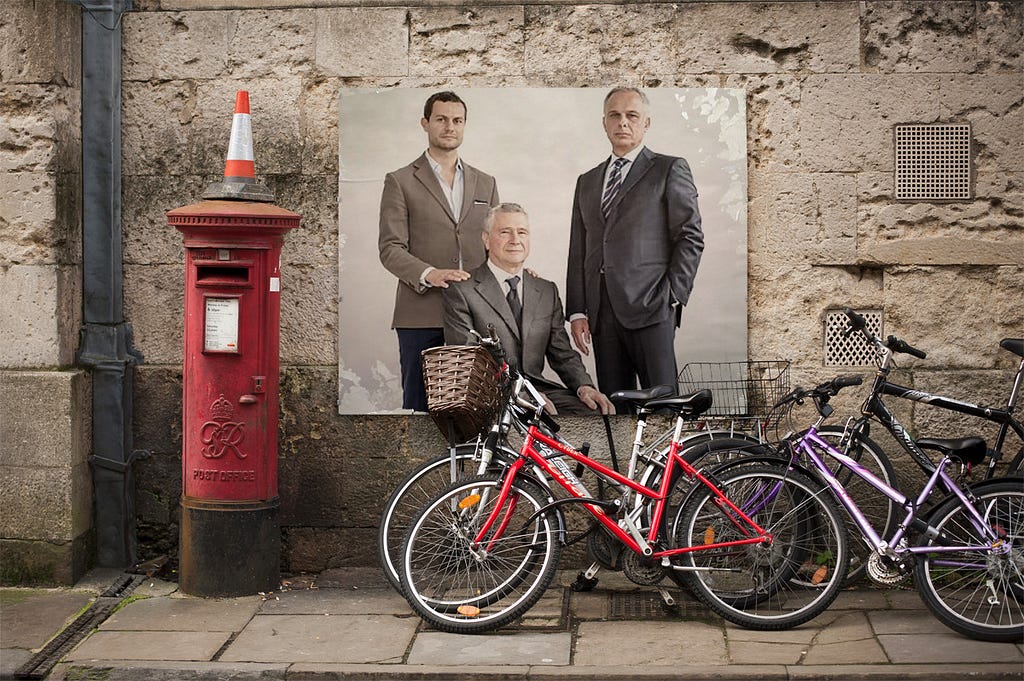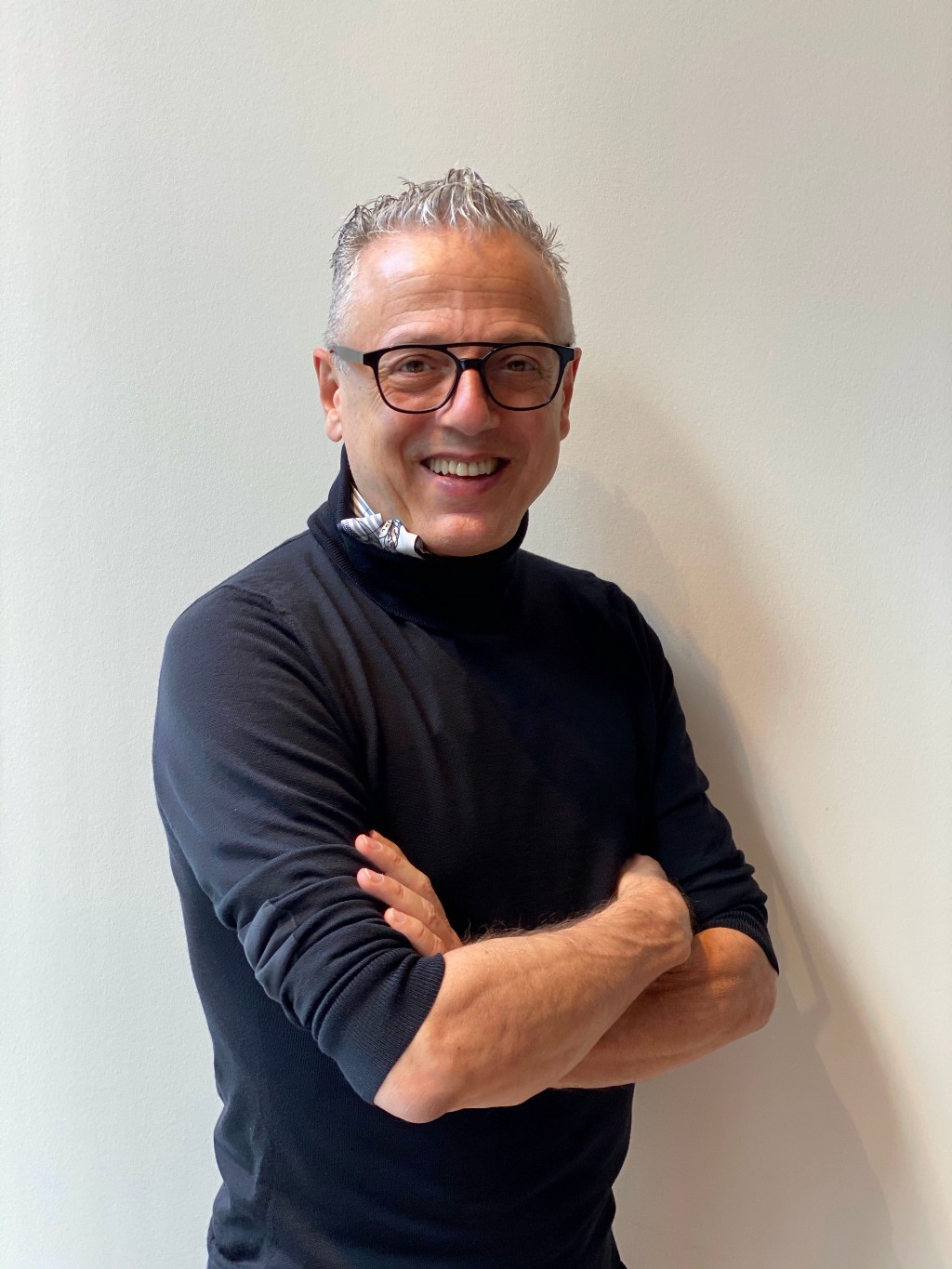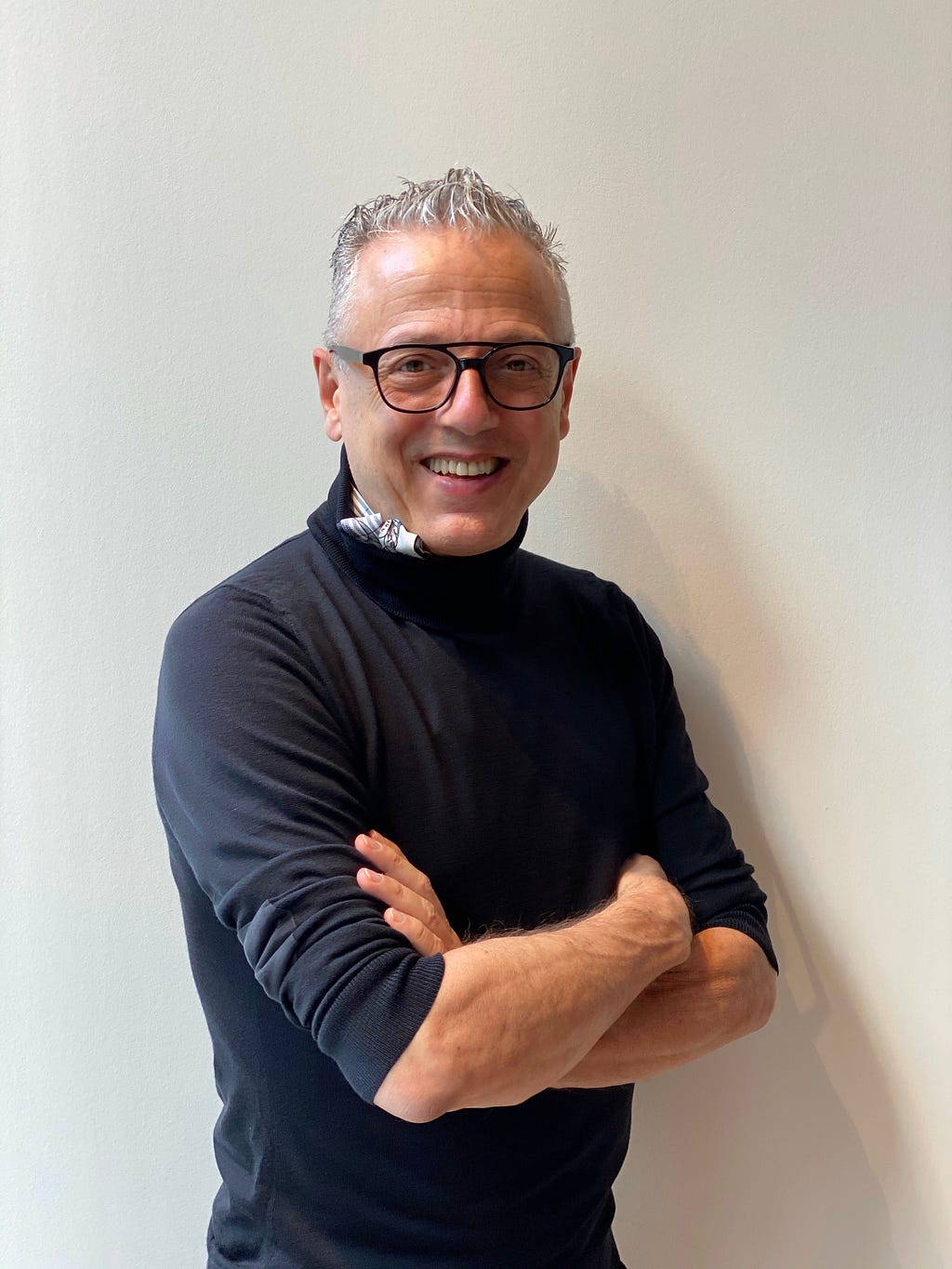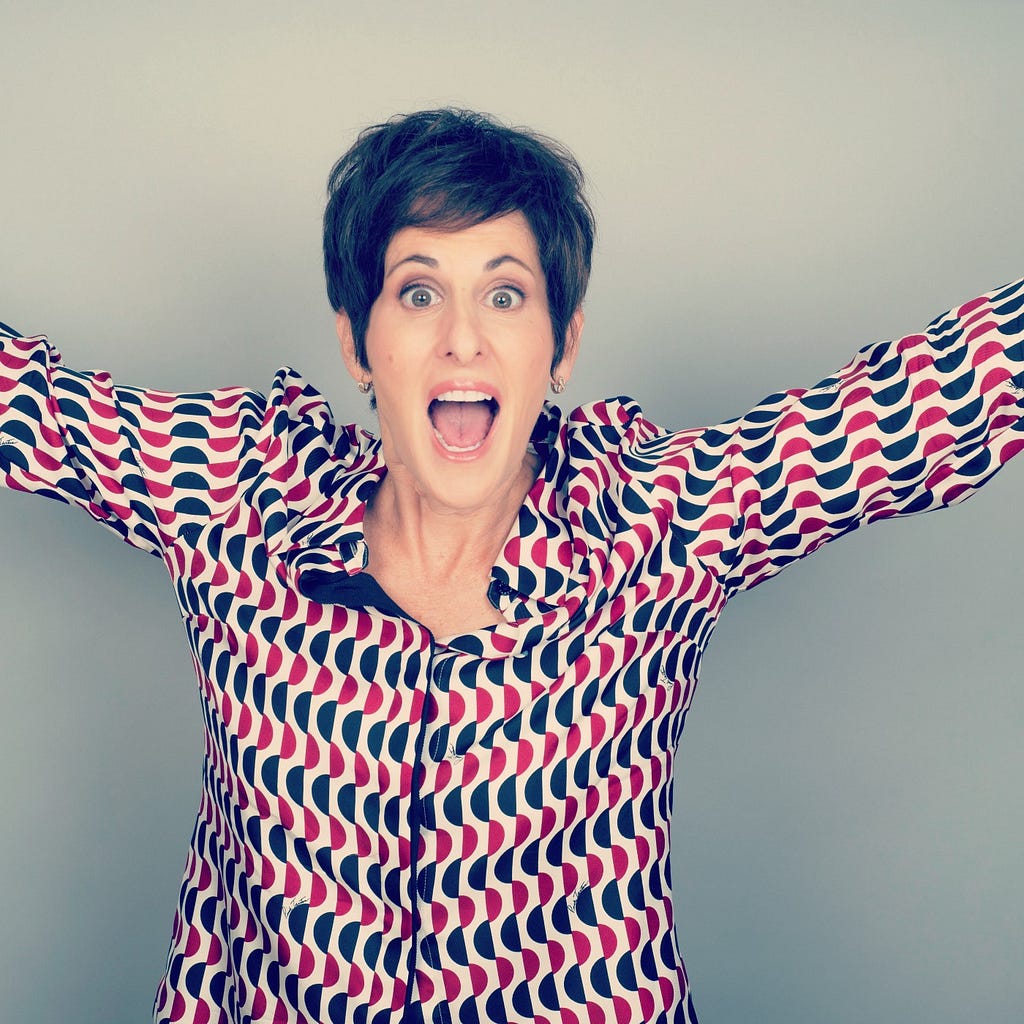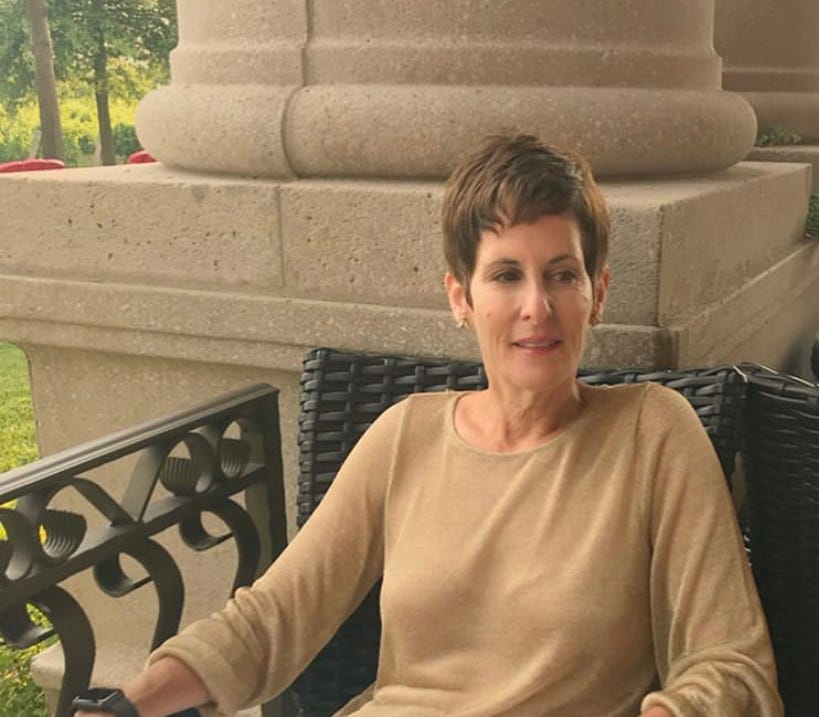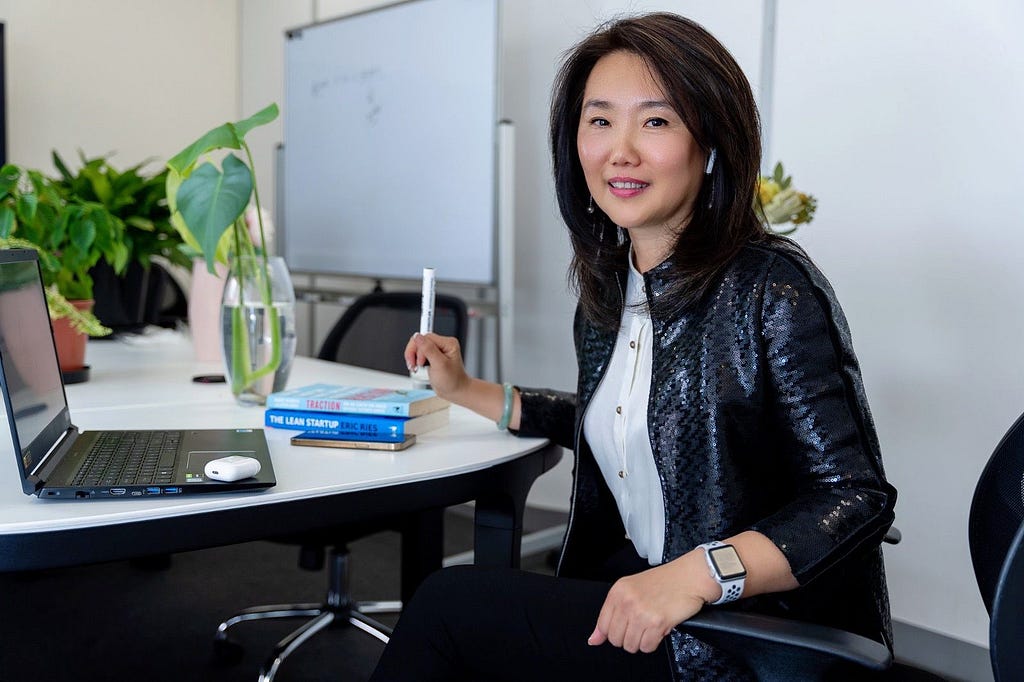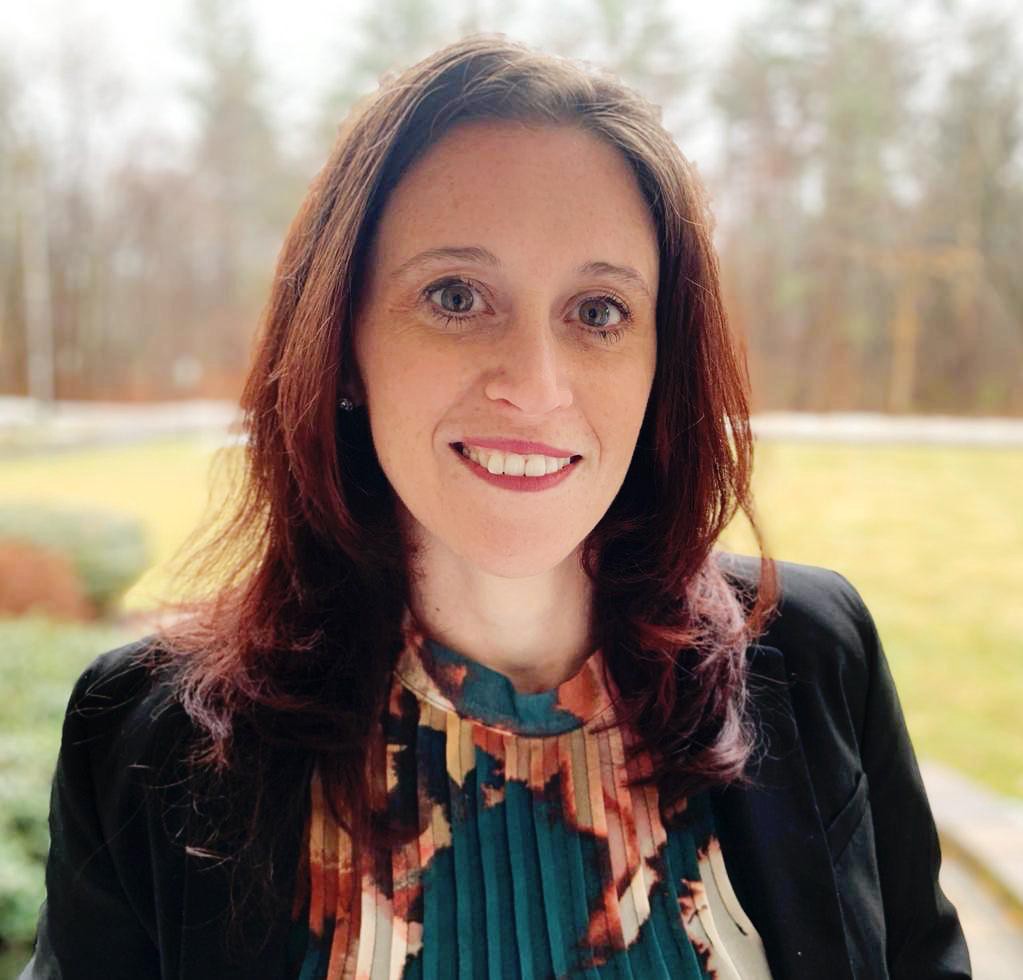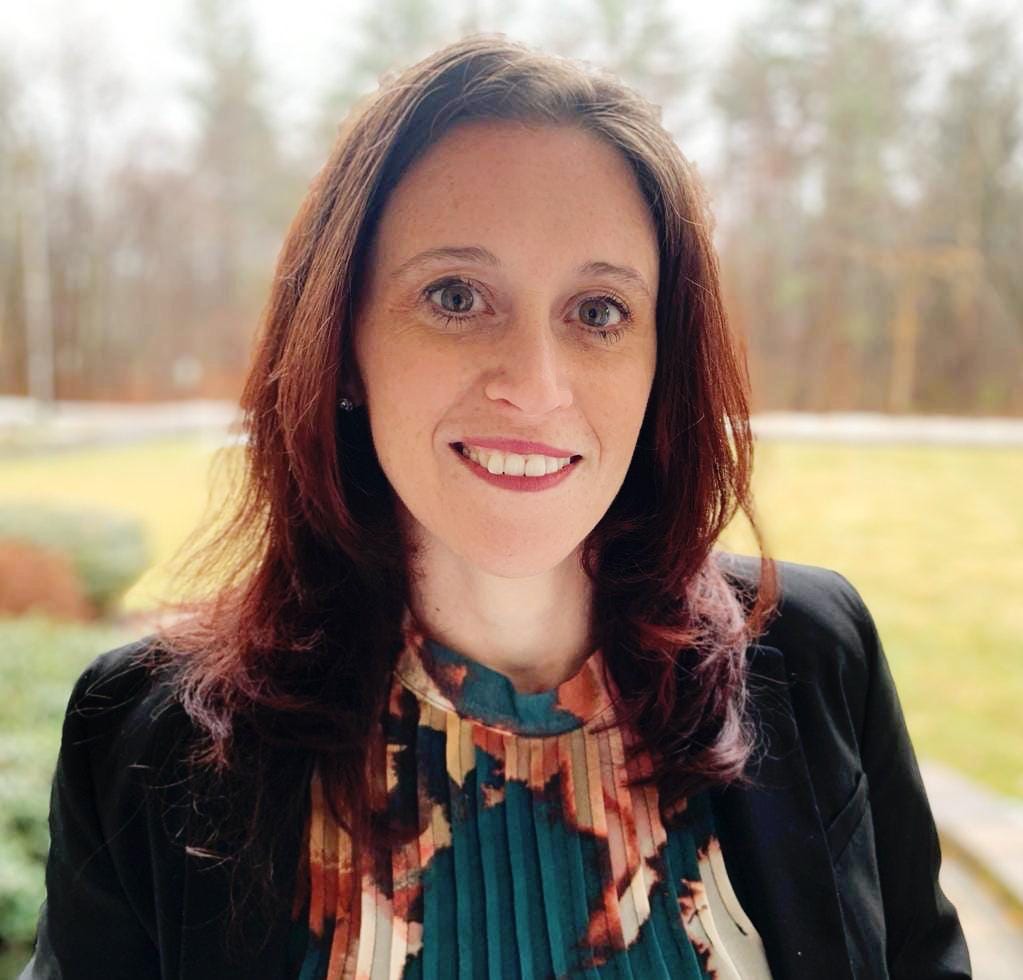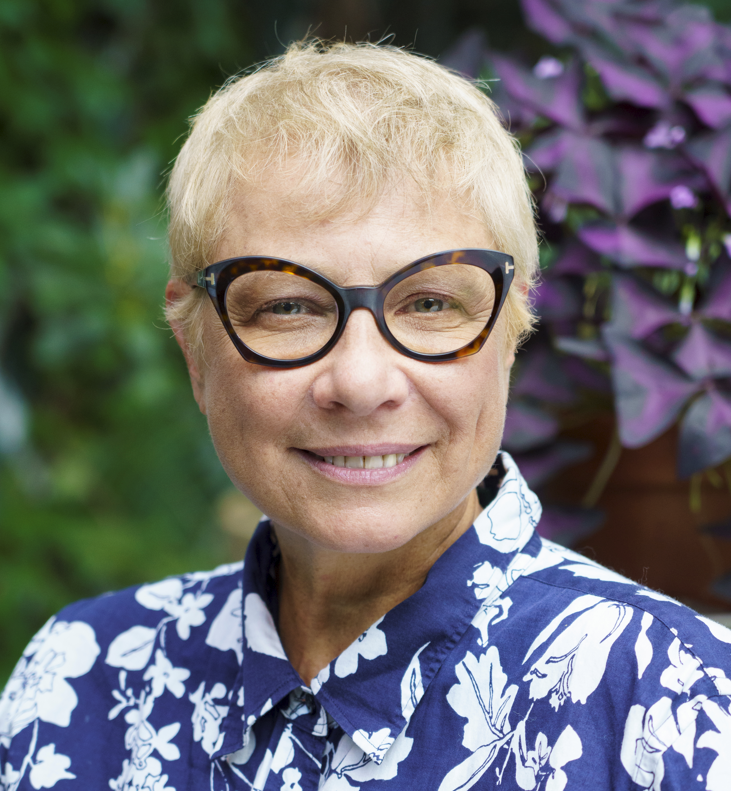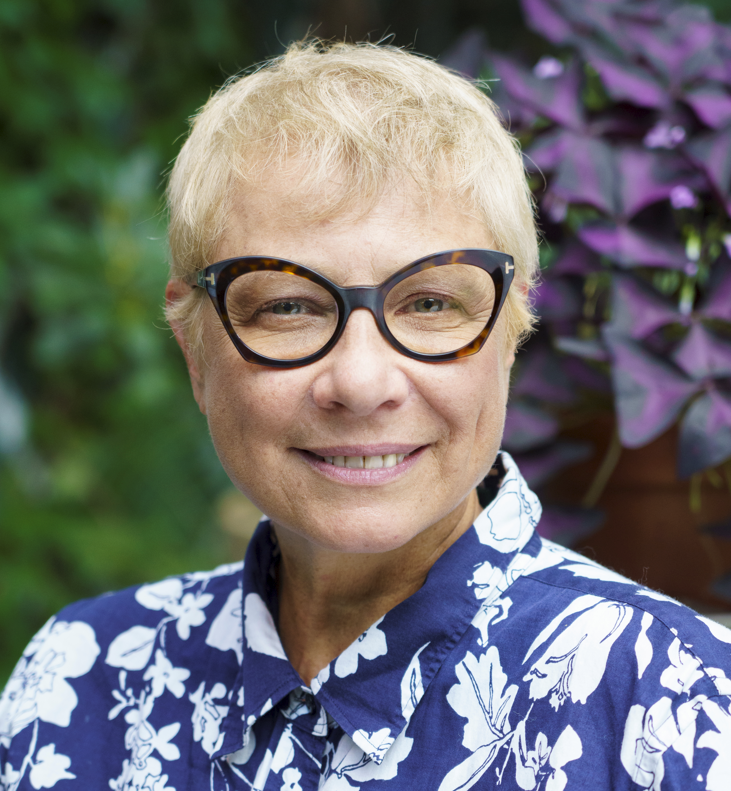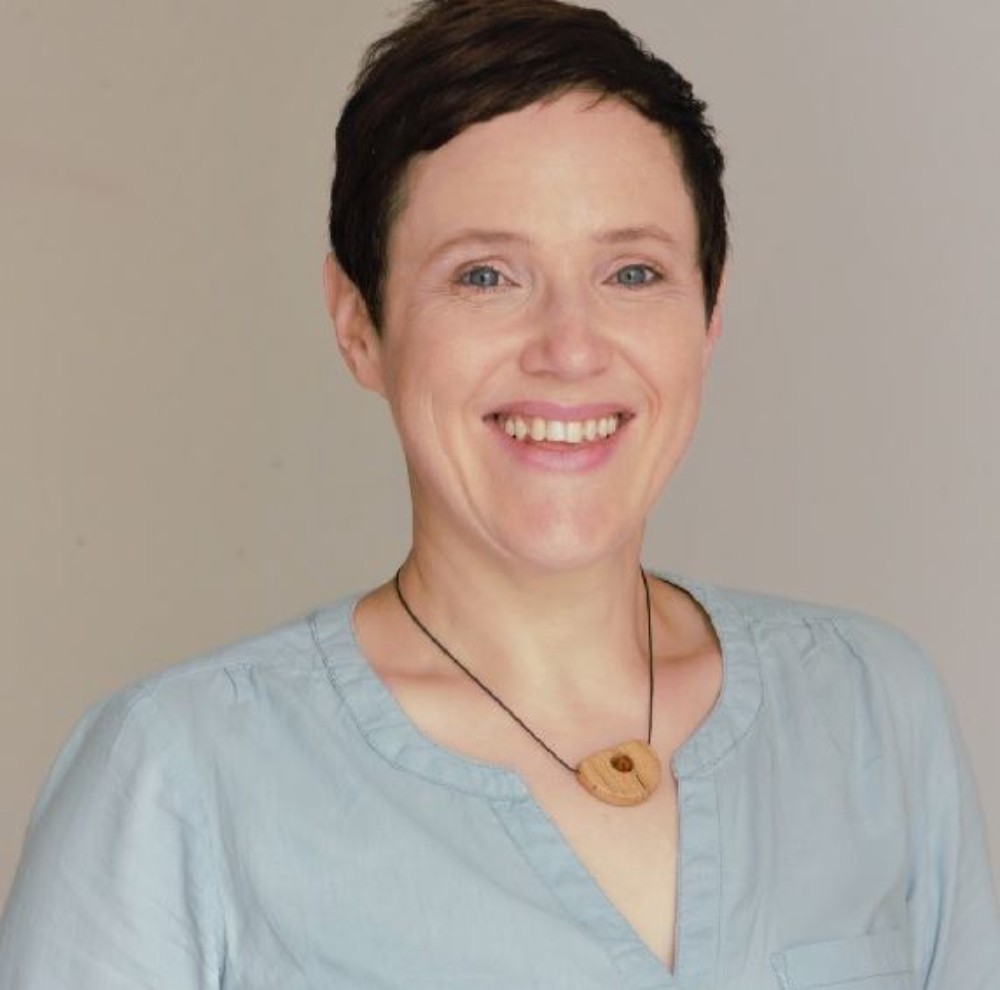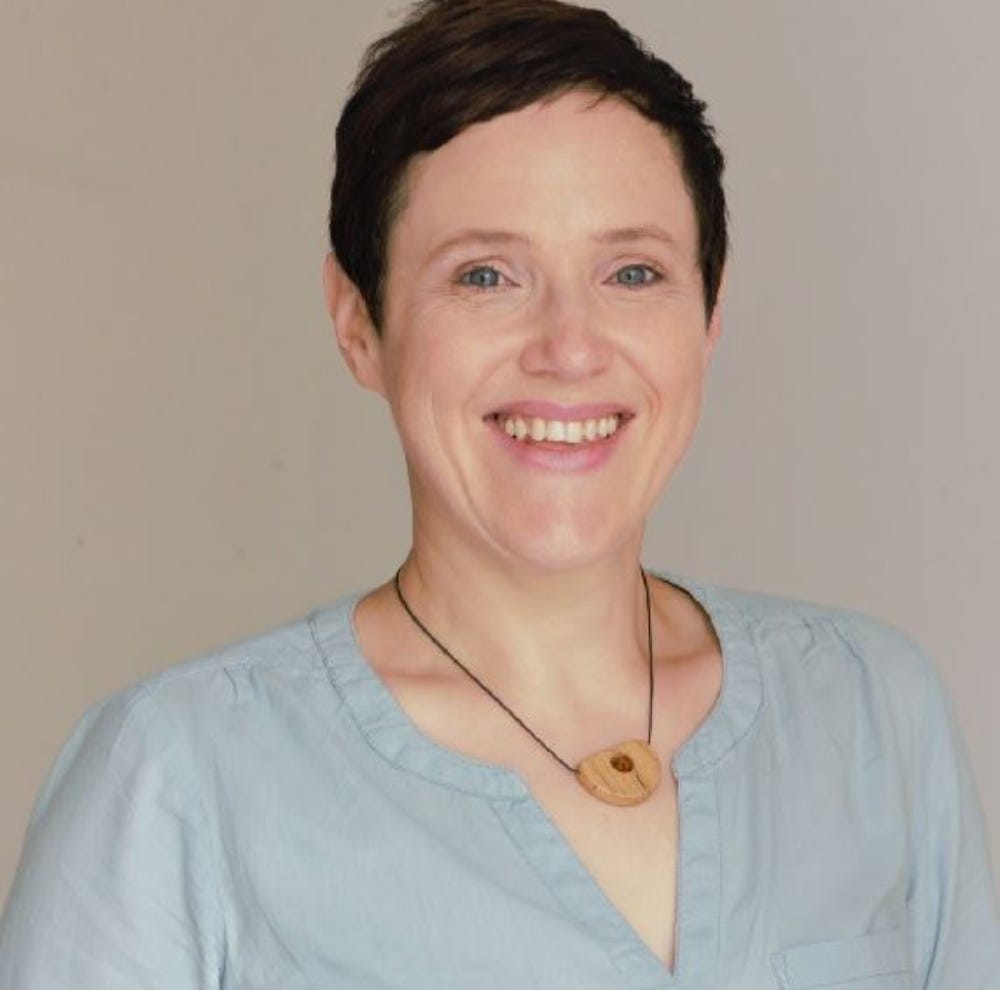Inspirational Women Leaders Of Tech: Anamarie Huerta Franc of SAP Labs On The Five Things You Need To Know In Order To Create A Very Successful Tech Company
An Interview With Candice Georgiadis
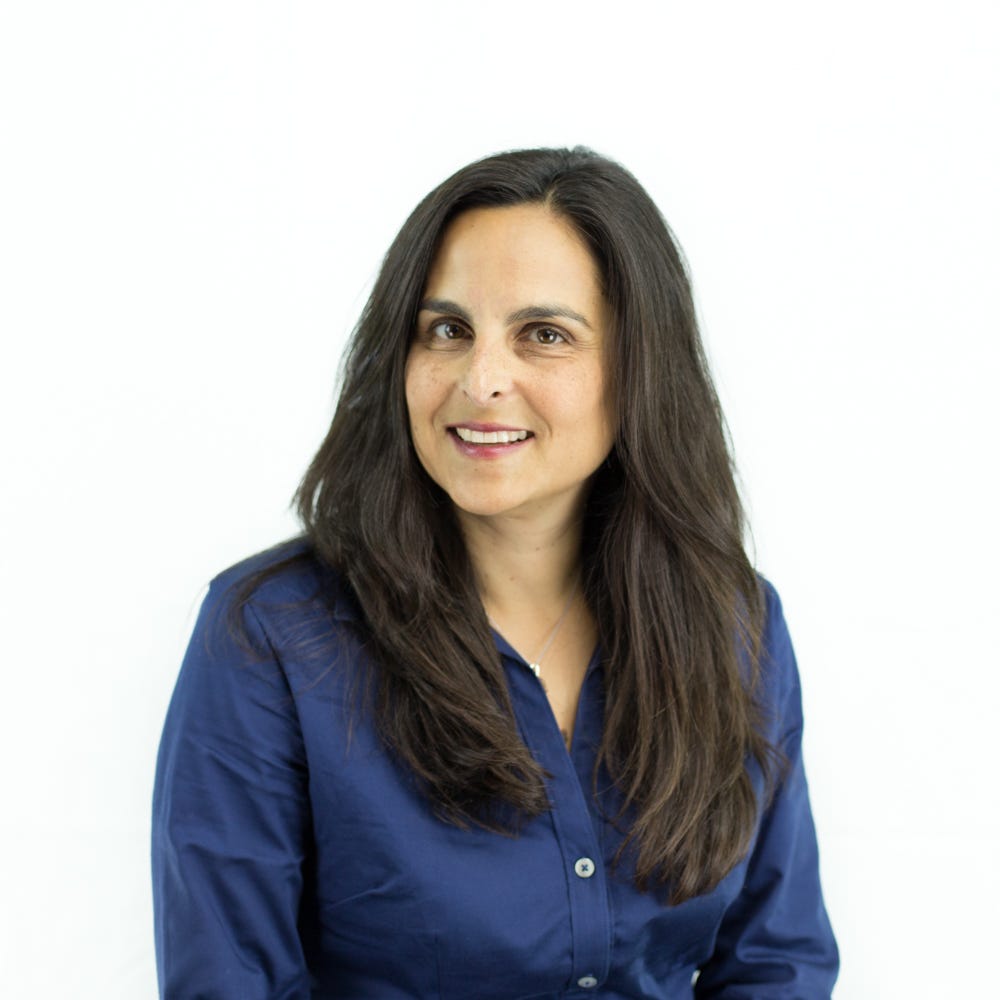
You can be a leader at any time. I learned this as an individual contributor when I joined a team and developed new market positioning for our product portfolio. My plan required other people and teams to execute. Without any formal authority, I went to each team, pitched my idea, and discussed how it would benefit them. I took on a lot of the work to begin the plan’s execution and before I knew it, teams were coming to help me and also wanted to contribute. By earning their respect, and demonstrating that I was creating something that would benefit everyone, people naturally looked to me as a leader.
As a part of my series about “Lessons From Inspirational Women in STEM and Tech”, I had the pleasure of interviewing Anamarie Huerta Franc.
Anamarie Huerta Franc is managing director of SAP Labs in the U.S., responsible for leading cross-company collaboration, location strategy, communications and employee engagement for development employees across the country.
Thank you so much for doing this with us! Can you tell us a story about what brought you to this specific career path?
After graduating college with a degree in humanities, it took me a few years to find my way into enterprise technology. I initially worked in industrial distribution during the dot com bubble. I got quite a bit of experience in understanding supply chains and project management in that role. I enjoyed being on the front lines but was also drawn into the rapid growth and innovation of Internet-based businesses and products in Silicon Valley. I joined the database company Oracle in a product management role for their first Internet procurement product and knew I had found the right Industry for me. My work in enterprise technology showed me the impact that technology can have in creating solutions for the world’s largest companies. While I didn’t have a technology background, I had a thirst for knowledge and a passion for the business. I saw the power that came from bringing together business strategists with an understanding of the “real world” use cases, and technologists, and I was hooked.
Can you share the most interesting story that happened to you since you began at your company?
I first joined SAP after business school in the corporate strategy group. I was excited to work on management consulting projects and help shape the future of the company, which is one of the largest software companies in the world. To my surprise, I was asked to lead a project that would determine how to establish and integrate design thinking into SAP. At the time, design thinking was not as prominent as it is today, and my role was more operational in nature than I had hoped. I questioned my decision to take the role when I saw my business school classmates with high profile jobs jetting around the world meeting with CEOs and advising on corporate strategy, while I was writing job descriptions and scheduling interviews to build a new design thinking team. But I told myself I would embrace it, for the time being, learn everything I could, and see where it would take me. And that’s exactly what I did. I earned a reputation for being able to take something completely unknown and drive it forward. I also built strong relationships with some of the smartest and most forward-thinking people at SAP and in my career. It turns out, I was at the forefront of a movement in the technology industry that has had an influence on everything I have done in my career since then. Years later, it all came full circle when I returned to SAP to work with the Chief Design Officer, whom I had helped hire to that design thinking team years before.
What do you think makes your company stand out? Can you share a story?
What first excited me about enterprise technology is the immense impact it has on the world and society. SAP customers generate nearly 90 percent of total global commerce and 99 out of the 100 largest companies in the world are SAP customers. So when you think about it, when you are making an impact at SAP, you are making an impact on nearly 90 percent of the total global commerce, and that’s an incredible feeling. I wake up excited every day to work with my colleagues worldwide and learn from each other.
SAP is truly a global company with a range of people from diverse cultures and with unique skill sets. I have had the opportunity and privilege to work across so many different geographies and cultures. Within SAP, this diversity is recognized as a critical element of our company’s success and empathy is a core competency to this success — we have to walk in others shoes to come to common ground.
Are you working on any exciting new projects now? How do you think that will help people?
At SAP our purpose is to help the world run better and improve people’s lives. And that is not just about technology but also about how we give back to our communities. We have an amazing Corporate Social Responsibility program at SAP with financial as well as active volunteer efforts across a number of initiatives. In North America alone, our efforts as an organization to build digital skills and inclusion impacted over one million lives last year, and we spent almost 28,000 hours volunteering our time. Recently we announced a scholarship program in partnership with the University of the People to support education for refugees and displaced youth. And we will soon make additional announcements, particularly in support of women in technology.
Ok super. Thank you for all that. Let’s now shift to the main focus of our interview. Are you currently satisfied with the status quo regarding women in STEM? What specific changes do you think are needed to change the status quo?
Throughout my career, we have made a lot of progress, but there is still much work that needs to be done, and we have a long way to go. There are two ends to the spectrum on which we need to focus. First, it is imperative that we encourage young girls at an early age to explore, study and excel at STEM and technology subjects and curriculum. SAP partners with some incredible organizations that support these initiatives, including Ignite Worldwide, TechBridge Girls, and The unCommission project to name a few. It is also important that we have more women in STEM leadership roles. Early in their careers, women must be able to see a path to leadership and growth. This will not only keep more women in STEM-focused careers, but it will also provide motivation for more women to pursue these roles as they will be inspired and realize that there are clear and realistic opportunities for them. I’m proud to be an executive sponsor for SAP’s Business Women’s Network (BWN), our largest and longest running employee resource group. Among many fantastic programs, BWN organizes is the annual Women in Data Science (WiDS) Silicon Valley event that brings together leaders within SAP and outside our organization to build community and learning on the ever evolving landscape of data science and to showcase women in the field across all technology functions from engineering to sales and marketing.
In your opinion, what are the biggest challenges faced by women in STEM or Tech that aren’t typically faced by their male counterparts? What would you suggest to address this?
As I mentioned, it is important to have women not just pursuing careers in STEM and technology, but also in leadership roles to give the next generation of workers something with which to aspire and also help pull up other women. Unfortunately, there are simply not enough women in leadership positions in our industry, which creates a lack of representation and mentorship. It can also create unconscious bias when recruiting and hiring.
To combat this, there are a few basic things we should do. We should conduct blind skills assessments for every job candidate to make sure we are not evaluating people with conscious or unconscious biases. At SAP, we do this across the company. I’ll use our SAP Next Talent program, an early talent rotational program created for designers, developers, and data scientists, as an example. With no quotas or targeted hiring goals, we have hired almost 50% female cohorts based solely on experience and expertise.
We also need to get more women, myself included, talking about their experience in STEM and technology and the different paths they have taken. Early in my career, I thought that only developers could get involved in technology with two distinct parts of a company in either developer or business roles that functioned separately from one another. There was almost a mysticism applied to the profession, but I have learned that this is simply not the case. I, for one, have proven that you do not need to have an engineering or computer science background to be a leader at a global technology company.
What are the “myths” that you would like to dispel about being a woman in STEM or Tech. Can you explain what you mean?
The primary myth that needs to be busted is that you need to have a computer science or engineering degree to work in technology full stop, let alone to be a woman in technology. This is just wrong. I know many women who started their careers on the business side and are now very successful in technology. In fact, that business perspective often grounds the reality of the incredible engineering developments and concepts to actually bring successful products to market. From my early work in design thinking, I learned that it is about identifying the problem and then bringing a diversity of perspectives, including feasibility, desirability, and viability, in order to solve it with delightful, usable, and useful solutions. I see examples of this across the entire company, not just in development or engineering roles. Diversity of perspectives is an asset for any technology company and should be embraced and encouraged.
What are your “5 Leadership Lessons I Learned From My Experience as a Woman in STEM or Tech” and why. (Please share a story or example for each.)
- You can be a leader at any time. I learned this as an individual contributor when I joined a team and developed new market positioning for our product portfolio. My plan required other people and teams to execute. Without any formal authority, I went to each team, pitched my idea, and discussed how it would benefit them. I took on a lot of the work to begin the plan’s execution and before I knew it, teams were coming to help me and also wanted to contribute. By earning their respect, and demonstrating that I was creating something that would benefit everyone, people naturally looked to me as a leader.
- Be your authentic self. I work for a German enterprise software company. I started in a role in the CEO’s office in which half the people were in Germany and half were in Palo Alto, California. I was the only woman and one of the most junior on the team. If you know me, you know that my personality is so Californian. There were times people told me to “tone it down,” “your personality doesn’t work with technical people,” and “German culture is less openly emotional.” Some of this feedback helped me grow and communicate better with my colleagues, executives, and stakeholders. But, I also know that my boisterous, openly passionate, and emotional personality is part of what makes me, well me. If I constantly tried to fit into someone else’s mold, I would have left behind some of my core strengths. As I have become more confident and more experienced, I have come to realize that it is precisely my boisterousness, emotion, and passion that has helped me to be successful.
- Don’t be afraid to get your hands dirty. When I first started managing a customer success team, we were faced with a large issue. I was just ramping up the team and the choice was for me to manage the issue or delegate it to one of my reps who was already overloaded with work. I took on the issue and managed it myself until it stabilized. New reps were onboarded during this time, and I had one of them shadow me so they would have a smooth transition when it came to taking over the account. By doing the work myself, it helped me better learn and grasp the details of my new position. I knew that I could not consistently take this hands-on approach and be successful as a leader, but the team appreciated that I rolled up my sleeves right out of the gate to tackle an important issue and also delegated and coached once we had ramped up the team. In turn, I also earned their respect.
- Surround yourself with great people, different cultures, views, and skill sets. When I started in a global customer success role, I didn’t have the formal background, expertise, or experience running a large global team. What I did have was a team with a variety of backgrounds and skill sets who had great ideas. I realized my job was to set a vision and strategy with the team and then give them the freedom to execute. Without intending to do so, we built a team represented by a diverse range of genders, sexual orientations, nationalities, and more. Everyone had a voice and we succeeded by playing off of this diversity of ideas, experiences, and beliefs. As an example, I had one person that didn’t yet fit into any mold of a formal role on the team, but he was eager and willing. He volunteered to help better understand the dynamics in a market and build and lead a team in a location where we were having problems. He understood the culture in that region, understood the vision and priorities of what we needed, and so, without hesitation, I supported his pitch to move halfway around the world for six months to go tackle something big for the team. Not only did he help us turn around a problem situation, but he also grew and progressed in his own professional career. He did what I personally could not have done, which I embraced, giving him the freedom and guardrails based on his initiative.
- Act with empathy and build relationships. My first job in technology was working on Oracle’s Internet procurement product. It was at a time when companies were just starting to look at business applications in a hosted environment. I was initially intimidated by the assignment, as I was surrounded by people who had been in technology for much longer than me and who had educational backgrounds in technology. I could have shied away, but I dove into the job. I asked a lot of questions, sought advice, and offered my help. I went to lunch with people to build the personal relationships and asked about their challenges at work and what I might be able to do to help them. I made sure to remember small important things for them, even if non-work related to show that I cared about them not just for work purposes but also as a human. This helped me quickly learn the position and build relationships with my co-workers and my managers. We began to see each other as more than just a diploma and resume. We learned each other’s strengths and became a team
What advice would you give to other women leaders to help their team to thrive?
This sounds like a cliche, but I truly believe in giving people opportunities even before they might be formally ready. There have been many times in my career when someone took a chance on me before I was ready, and I want to do the same for others. That said, while it’s important to give people opportunities, it’s also important to encourage people to take risks and to learn from their “failures.” Coaching is essential in these situations. Sometimes it’s taking those leaps of faith or learning from failure that really pushes people to think differently and outside the box, and, more often than not, I think it actually makes them a better leader.
What advice would you give to other women leaders about the best way to manage a large team?
I am not sure there is specific advice I would give to just female leaders. My advice is relevant for any leader. You need to hire great managers under you and delegate and trust them to run their teams. You must surround yourself with people who have different experiences, backgrounds, and ways of approaching work than you and then encourage them to raise and listen to those diverse approaches to help you make decisions. Don’t worry that you won’t know everything and have every answer. I’ll save you the time — I don’t, you don’t, no one does, and that’s ok. The larger the team, the more you won’t know. Embrace it. You must set clear goals, priorities, and two-to-three simple KPI’s. — then let your team run. Your job is to set the vision, clear hurdles and roadblocks, and coach as needed. Finally, you need to relentlessly prioritize your team’s activities and goals. The larger the team, the more complexity that can arise. Your job every day is to make sure your team is crystal clear on priorities.
None of us are able to achieve success without some help along the way. Is there a particular person who you are grateful towards who helped get you to where you are? Can you share a story about that?
I am extremely grateful for having an older brother in my life. He is six years older than me and growing up I always looked up to him. He was my protector; he would not even let me ride my bike down the street to the local 7–11 on my own. He also always challenged me to learn more and to raise the bar on my expectations and my goals. When he was studying for standardized tests in high school, he would sit with me and try to teach me about some of the subjects. Even though it was way beyond my comprehension, it kept me curious. He was my mentor who would always catch me when I fell, but also encouraged me to be more than I ever thought I could be.
How have you used your success to bring goodness to the world?
I believe that my empathetic approach to the workplace, co-workers, customers, and partners brings a level of integrity to a world that is now all too often fractured by differences and disagreements I truly do believe and try to act in a way that reflects on our differences by walking in someone else’s shoes and trying to understand their perspective in order to build common ground. I also go out of my way to help other women by mentoring them and giving them chances that they might typically have never received.
Can you please give us your favorite “Life Lesson Quote”? Can you share how that was relevant to you in your life?
Live the golden rule. I was always taught to treat others as you would like to be treated. I strongly believe in the Golden Rule. I was always taught to treat others as you would like to be treated. I view my job as giving back and helping others to reach and achieve what they never thought possible, which is what helped me reach my level of leadership. I have always been humble and tried to stay grounded, and my leadership ethos is to always be authentic to your true self. That has helped me build high performing teams that respect one another.
We are very blessed that very prominent leaders read this column. Is there a person in the world, or in the US with whom you would love to have a private breakfast or lunch with, and why? He or she might just see this if we tag them :-).
Michelle Obama. She is an amazing woman on all fronts — career, family, community. What I most identify with her is her statement “When they go low, we go high”. It’s always easier to find fault and talk about what’s wrong. Instead, let’s work together to build common ground and a more perfect world.
Thank you so much for this. This was very inspirational, and we wish you only continued success!
Inspirational Women Leaders Of Tech: Anamarie Huerta Franc of SAP Labs On The Five Things You Need… was originally published in Authority Magazine on Medium, where people are continuing the conversation by highlighting and responding to this story.


